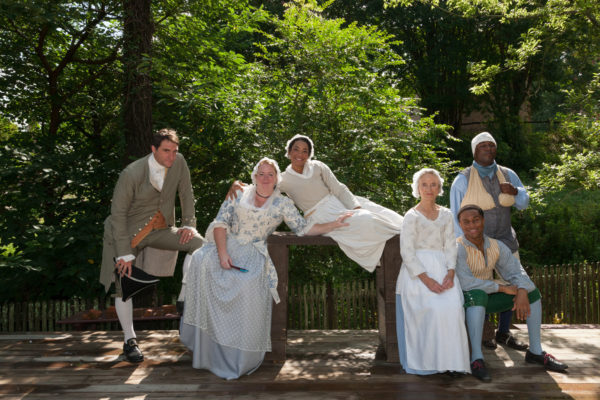
Join us in February as we celebrate Black History Month with a full schedule of special tours, programs, films, and more. Although we tell these stories throughout the year, the special focus this month allows us to appreciate just how far we’ve come—and how far we still have to go.
More than half of 18th-century Williamsburg residents were African American. Almost all were enslaved. Our February observances remind us that the one measure of our progress as a nation is how far we’ve come in making the rights and freedoms hailed by the founders available to all Americans.
Click on links for dates, times, and additional information. Our main page also has an overview of the month’s activities.
Let Freedom Ring
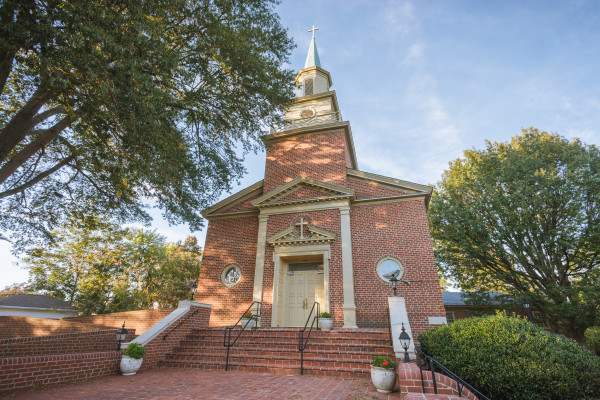
Last year we launched Black History Month by challenging all Americans to ring the restored bell of Williamsburg’s First Baptist Church, which dates its origins to secret gatherings in 1776 led by preachers Gowan Pamphlet and Moses. Visitors took up the challenge all year long. In September President Obama helped 99-year old Ruth Bonner, whose father was born in slavery, ring the bell, which was transported to Washington, DC for the grand opening of the Smithsonian Museum of African American History.
Step up and ring the Freedom Bell this February. There’s no charge, and the church is located just a few blocks from the Historic Area. Make your reservation online: Thursdays and Fridays from 10 a.m. – 2 p.m.; Saturdays 10 a.m. –5 p.m.; and Monday, Feb. 20 (Presidents Day), 10 a.m. – 5 p.m.
The First Baptist Church was originally located near the corner of Francis and Nassau Streets. A plaque marks the location, but you may not realize that the Taliaferro-Cole Stable just steps away offers a small exhibit that tells the story of African American faith in colonial Virginia. Open daily.
Our First Revolutionary in Residence
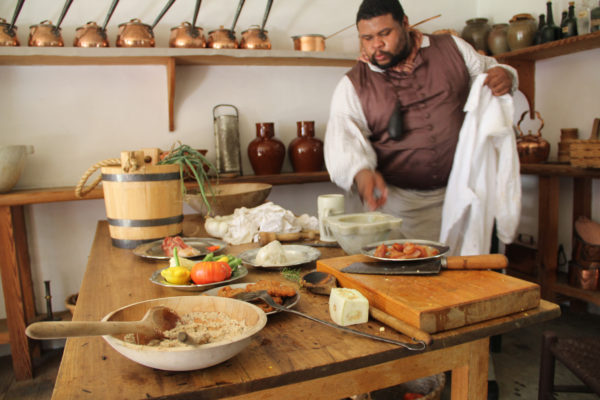
Acclaimed culinary historian, author, interpreter and “Afroculinaria” blogger Michael Twitty launches Colonial Williamsburg’s new Revolutionaries in Residence program, in which Virginia’s 18th-century capitol hosts modern-day innovators to engage the nation with fresh perspectives that capture the spirit and relevance of its founding era.
As part of the Revolutionaries in Residence program, Twitty will deliver Colonial Williamsburg’s inaugural REV Talk, in which he shares insights and fields audience questions. Saturday, Feb. 11, 5:30 p.m. at the Kimball Theatre. $5 admission.
Mr. Twitty has also created a special menu item, which will be featured in our colonial taverns as well as The Lodge.
Inspiring Programs
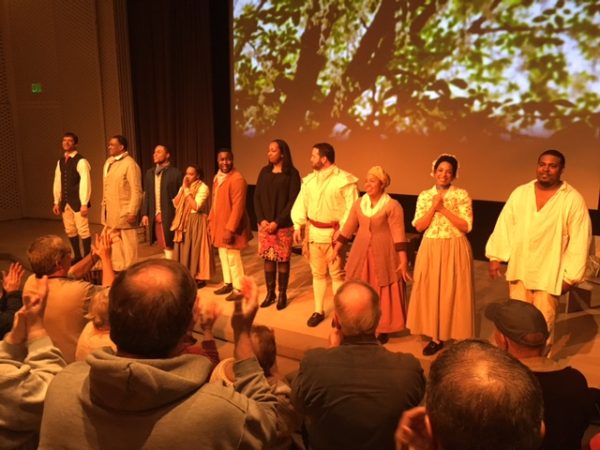
Don’t miss this uplifting musical, which places you in the heart of the enslaved community for an uncommon love story. How much will Johnny and Dolly risk to be together? To be free? How far will their community go to help them? Only two performances! Feb. 4 and 11 at 4 pm.
Despite living in a world where most had little time to themselves and for family, the enslaved still found ways to develop a rich culture and strong relationships. Meet Elizabeth, a free black woman, and her enslaved friends, Agnes and Lydia, as they prepare for a gathering. Discover how these women manage love, work, beauty, friendship . . . and, of course, hair!
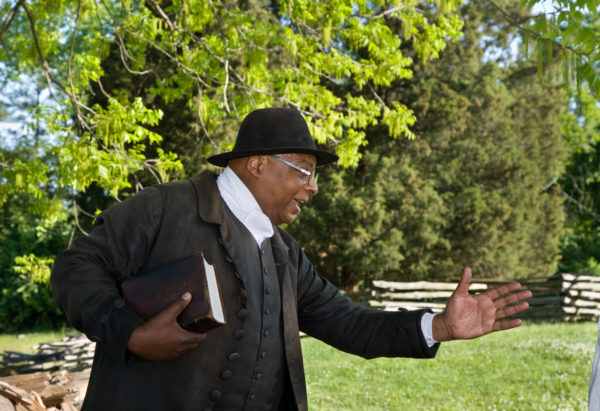
Here is the description: Gowan Pamphlet, an enslaved man and popular local preacher, offers his perspective on slavery, religion and freedom.
Telling the story of enslaved people takes commitment and a calling. Witness the conflicting emotions and challenges experienced by our actor-interpreters who portray the enslaved and the enslavers.
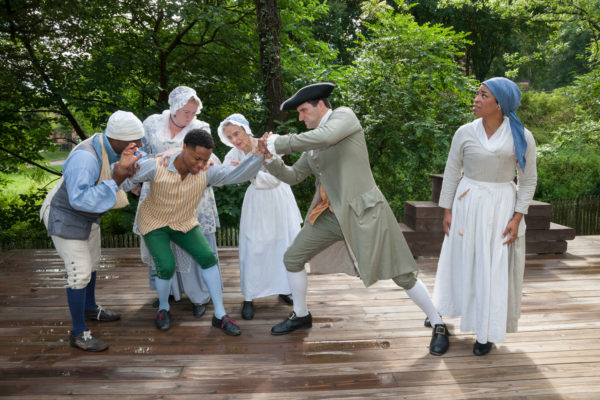
Lessons with Ann Wager
The Bray Society in England established schools for enslaved children in the Colonies. In Williamsburg, Ann Wager conducted the Bray School for African American children. Meet Mrs. Wager and learn about her work and her aspirations for herself and her students. What will you uncover in the 18th Century Classroom?
My Story; My Voice
Diverse voices share personal stories about the effects of living in a slave society. Hear one person’s 18th century story and the Actor Interpreter’s exploration of how they incorporate their own voice into a voice from the past.
Films at the Kimball Theatre
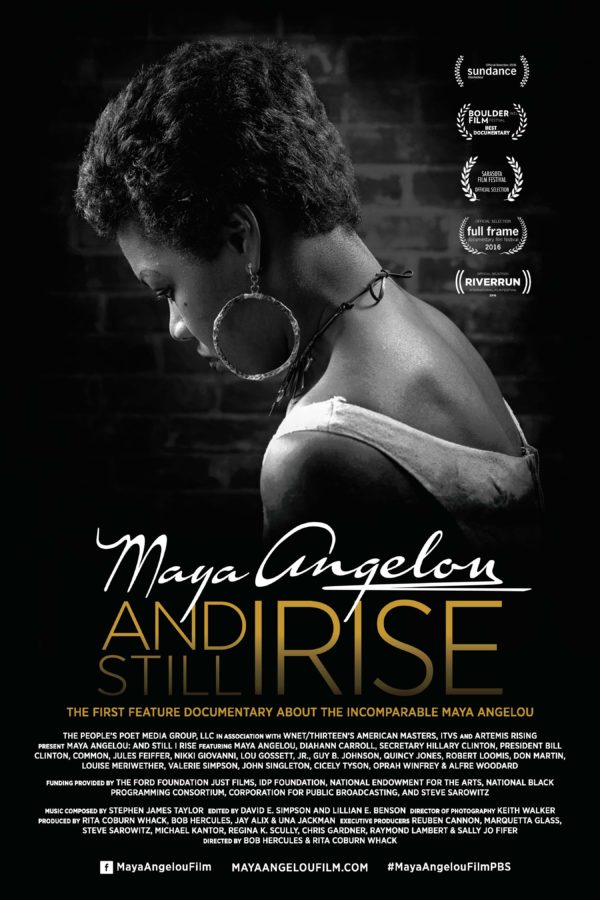
Exclusive preview! Ahead of its PBS release, we’re proud to offer a special screening of Maya Angelou: And Still I Rise.
This unprecedented film celebrates Dr. Maya Angelou by weaving her words with rare and intimate archival photographs and videos, which paint hidden moments of her exuberant life during some of America’s most defining moments. From her upbringing in the Depression-era South to her work with Malcolm X in Ghana to her inaugural speech for President Bill Clinton, the film takes us on an incredible journey through the life of a true American icon. Feb 10 at 7:00 pm.
Loving
“Loving” celebrates the real-life courage and commitment of an interracial couple, Richard and Mildred Loving (Joel Edgerton and Ruth Negga), who married and then spent the next nine years fighting for the right to live as a family in their hometown. Their civil rights case, Loving v. Virginia, went all the way to the Supreme Court, which in 1967 reaffirmed the very foundation of the right to marry – and their love story has become an inspiration to couples ever since. Showings Feb. 2-17.
At the Art Museums
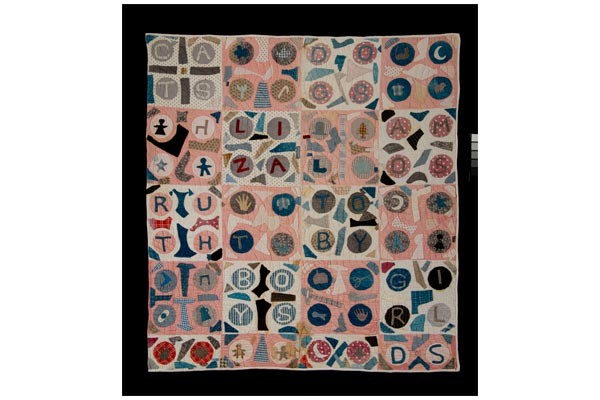
“A Century of African-American Quilts” remains on display through May 2018 in the Foster and Muriel McCarl Gallery of the Abby Aldrich Rockefeller Folk Art Museum.
Museum program highlights include the African-American Artists tour Thursdays at 10:15 a.m., and the live dramatic programs To Be Seen as an American Feb. 8 and 22, and “What is a Family?” Feb. 15, all at 3:30 p.m.
Tours from a Different Point of View
Guided tours of many of our most historic buildings will have a twist, highlighting African American perspectives, issues, and spaces. See the history you thought you knew from a different angle.
Randolph House
The Job They Didn’t Choose: Resistance, Community, and Healing
Freedom in one hand and slavery in the other. Discover how the enslaved at the Peyton Randolph House built community and resisted in a time of Revolution. Twenty eight enslaved people who lived on the Randolph Estate not only built the wealth of Peyton Randolph and our country but laid the ground work to accomplish freedom for future generations. Closed Monday.
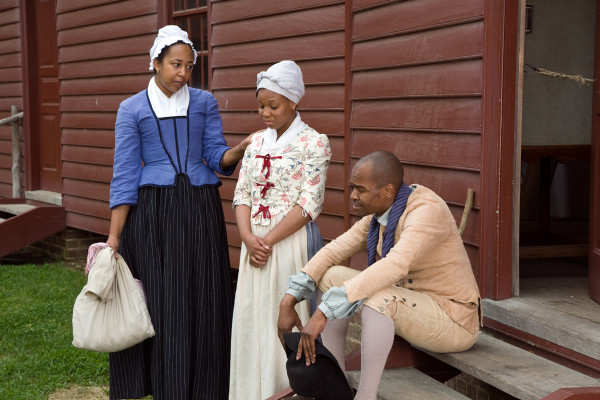
The Capitol
On this tour of the Capitol, discover how enslaved African-Americans fought to obtain their freedom by petitioning the Virginia courts and legislature. Also, learn how slave code affected African-Americans, both enslaved and free, and how criminal trials for the enslaved differed from those for free people. Open daily.
The Governor’s Palace
Behind the Seat of Power: African-American Contributions at the Governor’s Palace
The Royal Governors of Virginia wielded great influence over the colony, and to ensure success in the New World they often called upon free and enslaved African-Americans for help—both at the Palace and on missions throughout the colony of Virginia. Hear these important stories and learn about the contributions of free and enslaved African-Americans during the tours of the Palace. Open daily.
Wythe House
George Wythe was a lifelong learner as well as a teacher. Explore this original building and learn about daily lives of the free and enslaved members of the household and the Enlightenment ideals on which our nation was founded. Open daily, 9:30-1.
Pick out your must-sees and plan ahead for a fun and thought-provoking visit!
Leave a Reply